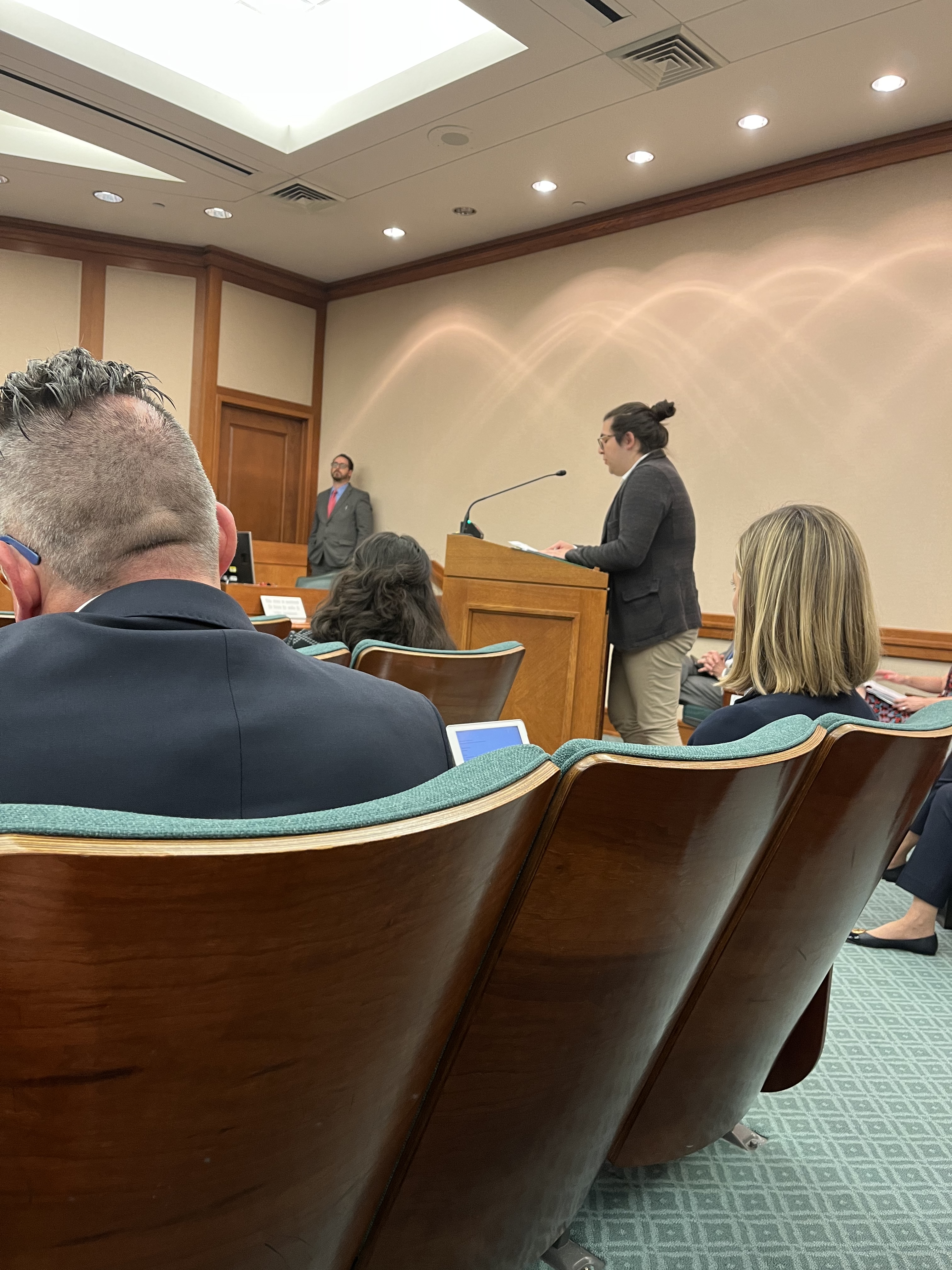
Photo: Ramón J. Cruz
By Cyrus Reed
In 2022, Texans have a unique opportunity to engage in a very “Texan” process to improve the efficiency and effectiveness of state government through a process known as “Sunset.” And there are some key events coming up next month as well as later in the year.
Okay, what is Sunset?
Well you might want to familiarize yourself with the Texas Sunset Advisory Commission in the coming weeks and months, but basically Sunset is a process whereby every single state agency (there are more than 170 of them) gets a kind of performance review about once every 12 years. Are they failing, getting an A, or somewhere in between? Should they be continued? Eliminated? How can they be more efficient or more responsive to the public? These are the basic questions the Sunset process is designed to address.
Which agencies are undergoing a “Sunset” review this year?
A full list can be found here, but the Sierra Club and many of our allies are focused on six agencies: the Texas Water Development Board, Texas State Soil and Water Conservation Board, the Texas Commission on Environmental Quality, the Public Utility Commission of Texas, the Office of Public Utility Counsel and ERCOT (the Electric Reliability Council of Texas). So water, soil, environment, air quality, and everything electricity essentially.
Each agency review has its own schedule, but follows the same process. First, each agency publishes a report on itself. Then there’s a period of time for any member of the public to submit written comments. That’s followed by a staff report with specific recommendations and approximately a month for the public to submit comments on those recommendations. Finally, there’s just one public hearing in Austin before the Sunset Advisory Commissioners.
As an example, the Sunset Advisory Commission staff have already released their recommendations on the TWDB and TSSWCB, and a public hearing was held in late April. You can find Sierra Club’s recommendations here (Soil and Water and Water Development Board).

Photo: Alex Ortiz, Water Resources Specialist, testifying to the Sunset Committee on Texas Water Development Board.
Which state agencies are most important and timely?
For water, TWDB is the agency in charge of water supply planning, flood planning, and the state’s funding for all water, wastewater, stormwater, flood control, and other related water infrastructure projects. Money coming to Texas through the Bipartisan Infrastructure Plan will go there. Think of all the communities with needs, many of whom have been historically underserved and ignored. Think about the changing climate and the need to be more resilient and conserve our precious resources.
Nonetheless, no agency touches more Texans concerned about the environment and quality of life than the Texas Commission on Environmental Quality, which oversees thousands of industrial sources of air, land, and water pollution, doles out permits, comes up with our state’s (largely failed) air quality plans, develops our water quality standards, and enforces state and federal environmental laws. We wish it were the Texas Commission for Environmental Quality, but it has not operated that way. Instead, the TCEQ has usually sided with wealthy polluting companies in permits, fines, and policy. Too often overburdened communities – more often than not Black and Brown communities – face illegal dumping, superfund sites, or even “legal” releases during storms, shutdowns, or malfunctions with not even a slap on the wrist for industry.
However, action on TCEQ is coming up. We expect a staff report out by the end of May, and the public hearing is being held at the Capitol on June 22, 2022.
The agencies dealing with electricity (PUCT, OPUC and ERCOT) are also of vital importance given our recent grid problems. However, the Sunset staff is only just beginning their review, and the reports are not expected out until November with a December public hearing. We have only just begun meeting with Sunset Advisory staff, and we will be communicating with our membership soon on these efforts. But please keep in mind the failures of our leadership to anticipate the storm, and the mild response since.
The community reacts
For decades, people watched and experienced the TCEQ fail to adequately protect public health and too often appear to take the side of wealthy polluters. Sierra Club has opposed dozens of poorly written permits, andsued the agency, EPA, and companies for failing to follow the law. In particular, we and allies like Environment Texas and the Environmental Integrity Project have used provisions of the Clean Air Act to go after companies that routinely break the law because state and federal agencies weren’t doing their job.
Fortunately, the Sierra Club is part of a large coalition of environmental and community organizations focused on fixing the TCEQ. Late last year we submitted lengthy comments to the Sunset Commission, and earlier this year our coalition released a new website called For Our Communities which can be found here.
"No one should have to worry about breathing polluted air or fear another chemical fire. We need TCEQ to keep the disasters from happening and do what it takes to hold polluters accountable when they break the law." —Erandi Treviño, Texas Field Organizer, Moms Clean Air Force
And we aren’t relying on one public hearing to share our stories about the TCEQ. We are holding our own. Coalition members held hearings in San Antonio, Houston, and Dallas this Spring.The next virtual people’s hearing will be on June 8 at 5pm.
If you have a story to tell, or an idea on how to fix the agency, join us!
Statewide Virtual People's Hearing
Wednesday, June 8, 5:00pm
For Our Communities is holding a virtual hearing for anyone in Texas to provide comments on TCEQ for the sunset review. The hearing will be held on Zoom and will offer Spanish translation. They will transcribe all comments in writing and submit them into the official record.
Who decides in the end? The Legislature and… YOU!
Ultimately, it is the Sunset Advisory Commissioners, which consists of five state senators, five state representatives, and two members of the public who make final recommendations on the agencies undergoing sunset review. The full list of commissioners can be found here. The chair is Sen. Charles Schwertner from Georgetown and the Vice Chair is Rep. Justin Holland from Rockwall. Eight of the 10 elected commissioners are Republican, and the two public members were named by Republican leaders.
Once recommendations are finalized, Sunset staff will prepare draft legislation. That legislation will be introduced in the 2023 Legislative Session, which is less than eight months from now. Then, a whole legislative process begins, with lots of opportunities for public input. Here’s the thing. If the legislature fails to extend the life of the agency, it becomes “sunset” meaning they really have to pass legislation. And we will be involved! In the meantime, before this goes to the legislature, please come to our virtual hearing June 8th, and consider coming to the meeting on June 22.